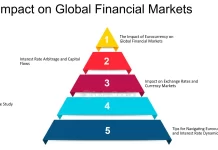Taiwan is assured by India of stable policy in the semiconductor industry: The Indian Express had previously revealed that the company’s cautious strategy is a result of important stakeholders wanting to be careful.
With Taiwanese companies and government representatives being wary of India’s intentions to become a semiconductor powerhouse, New Delhi has dispatched officials to the island nation with a crucial message: a clear guarantee of policy stability. According to information obtained senior representatives of the IT Ministry met with government officials and representatives of the industry in Taipei to reassure them of the stability of policy, particularly with relation to modifications to import regulations and adjustments to input customs taxes.
Business must relieve government of capital expenditure heavy lifting: RBI article
In June, representatives of the IT Ministry met with representatives of the Taiwanese government and Powerchip PSMC. A senior government source asked to remain anonymous said, “We assured them that policy stability would not change, that New Delhi will continue to support investments in the chips space, and that there won’t be any ad hoc changes to rules regarding material imports and customs duties.”
Thanks to technology help from Taiwanese chipmaker PSMC, Tata Electronics, which is opening the first commercial fab in India in Gujarat, will be able to begin operations. However, because PSMC and its partner are only collaborating on technology, PSMC does not own any equity in the business. It is also one of the smaller chip manufacturers in Taiwan that produces memory and legacy logic devices.
The company’s cautious strategy is a result of important stakeholders wanting to be safe. Due to its modest size, PSMC has “negotiated a model where they would not need to put money on the table.” I’m uncertain about the trajectory of this model,” a Taiwanese executive had expressed.
Through ongoing collaboration with Taiwanese chip companies and the government, New Delhi hopes to create opportunities for some of these companies to enter the Indian market with more stakes in the outcome. These opportunities could include taking an equity partnership in a joint venture involving chips and an Indian company, or starting an independent operation in the country.
The strategic island territory is home to some of the biggest names in chipmaking, including Taiwan Semiconductor Manufacturing Company (TSMC), which counts Apple and Nvidia among its clients, and United Microelectronics Corporation (UMC). This is one of the main reasons for New Delhi’s outreach to Taiwanese officials. Taiwan produces more than 90% of the most cutting-edge chips in the world, which are needed for nearly every type of electronic device, including fighter jets, data centers, cellphones, automobile components, and artificial intelligence (AI) systems.
The majority of contemporary semiconductors are made up of chips, or integrated circuits, which are basically a collection of tiny electronic circuits placed on a thin silicon wafer sheet. These circuits are made up of transistors, diodes, capacitors, resistors, and the connections between them. Fabs are highly specialized semiconductor manufacturing facilities that print silicon wafers with miniaturized integrated circuits derived from chip designs. The complicated fabrication process necessitates the use of cleanrooms to maintain sterile conditions and prevent airborne particle contamination. The entire process of manufacturing semiconductor wafers may involve 500–1,500 steps and several inputs, such as silicon wafers, common chemicals, specialty chemicals, and additional infrastructure requirements like a clean water supply and a constant power source.
The three components of the semiconductor ecosystem—packaging, assembly and testing facilities (also known as ATMP and OSAT units), and full-scale foundries capable of producing chips—are the main targets of India’s chip incentive programs.
From a Taiwanese perspective, New Delhi’s policy assistance is woefully lacking, which is a major reason why Taiwanese companies have not made significant investments in India yet.
Taiwan’s Minister of Foreign Affairs, Joseph Wu, had earlier mentioned that before chip companies from the island nation can make significant investments in New Delhi, India needs to address issues with its “cumbersome” administrative structure, lack of experienced engineers, and high tariffs for electronics component imports.
“India is known to be very cumbersome in its administrative structure and it would require for the Indian government to look at that too, to streamline all kinds of laws and regulations to help semiconductor investors coming to the country… In order to get the major semiconductor production to move to India, we need to think about the whole supply chain coming together… a whole cluster, rather than just one company. If it is only one company and nobody else, that is not going to help. We need to have IC design, testing, packaging, and material supply,” Wu had told The Indian Express earlier. IT Ministry officials have, however, consistently maintained that India has the “talent and deep expertise” to become a global player in the semiconductor value chain and that more interest is expected to come in from global players in fab investments.
In July of last year, Taiwan’s Deputy Minister for Taiwan’s National Development, Kao Shien-Quey, stated that major Taiwanese technology giants were considering India as a key destination to strengthen their global supply chains, and that there was “huge scope” for collaboration between New Delhi and Taipei in areas of emerging and critical technologies. All of that hasn’t really resulted in any concrete investment promises as of yet.




























